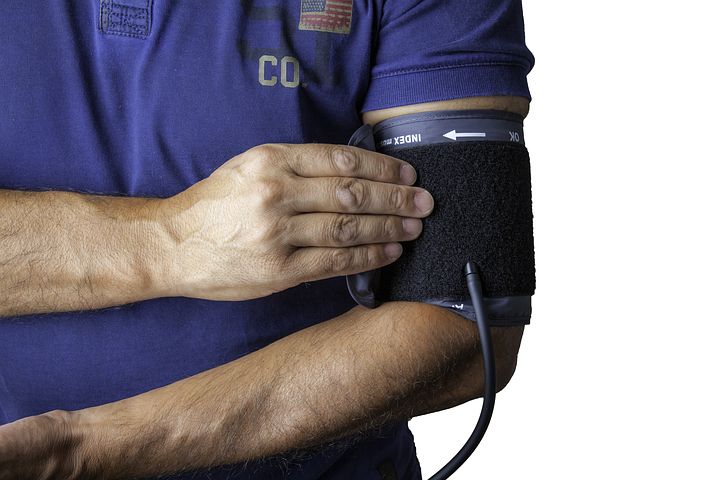What is blood pressure (BP)?
Key Points
- Hypertension is very common
- It can be successfully treated
- Treatment can prevent strokes, heart failure and slow progression of chronic kidney disease (CKD)
- Modern medicines are very effective
- They are more effective if you try to lead a healthier lifestyle.
So. What exactly is blood pressure?
Blood pressure is the pressure of blood pushing against the walls of your arteries. Arteries carry blood from your heart to other parts of your body.
Put in simple terms, it is the pressure which drives the blood around the body.
What do the two blood pressure numbers mean?
Blood pressure is measured using two numbers:
- First number – called systolic blood pressure – measures the pressure in your arteries when your heart beats
- The second number – called diastolic blood pressure – measures the pressure in your arteries when your heart rests between beats.
If the measurement reads 120 systolic and 80 diastolic, you would say, ‘120 over 80’, or write, ‘120/80 mmHg’.
What is normal blood pressure?
There is no such thing as ‘normal blood pressure’. But for most adults there is a normal range between 110/70 and 140/90 mmHg.
“130/80 is a good average target for most patients, and 120/70 if you have diabetes.”
For most people, high blood pressure (BP) is ‘silent’, i.e. you cannot ‘feel’ whether it is high or low.
High blood pressure (hypertension)
Hypertension is the medical term for persistently high blood pressure. Blood pressure can be affected by many factors including:
- Genetic
- Environmental
- Obesity
- Excessive alcohol intake
- Chronic kidney disease (CKD).
How common is high blood pressure?
High blood pressure (or hypertension) is one of the commonest long term conditions. In fact, 20% of the population have high blood pressure, and a third of people over the age of 55 years. Over 6 million adults take blood pressure tablets in the UK.
Why is high blood pressure important?
It is because it causes strokes, heart failure and worsens CKD – which is why we treat it.
Effects of hypertension
This can have an effect on other areas of the body:
The heart
Continued hypertension will cause the heart to fail as a result of having to pump harder over many years.
The central nervous system (CNS)
It may cause damage to the eyes or cause a stroke.
The kidneys
The kidneys are supplied with blood through a network of small blood vessels. Continual hypertension causes them to thicken. This causes a narrowing of the vessel which will reduce the flow of blood to the kidney.
As a result, the kidney becomes gradually damaged, and this can cause chronic kidney disease (CKD). CKD can be both the cause and effect of hypertension.
How can I help my blood pressure?
Some people can reduce high blood pressure by changing to a healthier lifestyle:
- Eating healthily – increase fruit and vegetables and low fat dairy products. Cut down on salt
- Lose excess weight – and maintain a healthy body weight
- Regular exercise (discuss with your doctor first)
- Quit smoking
- Limit alcohol intake
- Take your blood pressure.
If your readings remain consistently above 140/90 mmHg your doctor may begin medication.
There is a large range of medication available, and for people to reach their optimal blood pressure, a combination of two or more tablets may be necessary.
CKDEx has more information on how to take your own blood pressure. You should do this weekly (initially), then monthly then three monthly, depending on response to treatment.
Blood pressure treatment
Below are some examples of blood pressure tablets and how they work. Many others are available and further information can be obtained from your doctor.
- Diuretics (water tablets) (e.g. Bendroflumethiazide, Furosemide, Bumetanide and Metolazone)
– work by increasing the amount of salt and water the kidneys lose. This reduces blood volume, which results in a decrease in blood pressure - Beta blockers (e.g. Atenolol) – work in two ways. They reduce heart rate and the force of contraction of the heart
- Angiotensin-converting enzyme inhibitors (ACEs) (e.g. Ramipril) – work by reducing the amount of angiotensin-II, a hormone which is produced by the kidney to keep blood pressure up
- Angiotensin-2 receptor blockers (ARBs) (e.g. Losartan) – work by blocking the effect of angiotensin II on blood vessels
- Calcium channel blockers (e.g. Amlodipine) – work by relaxing the muscles in the walls of the blood vessels so allowing them to open up and lower the pressure
- Alpha blockers (e.g. Doxazosin) – work in similar ways to calcium channel blockers
- Sodium-glucose co-transporter-2 (SGLT2) inhibitors (or SGLT2is or ‘gliflozins’) (e.g. Dapagliflozin) – these drugs are primarily for type 2 diabetes (and heart failure, and CKD with protein in the urine). But their ‘side-effect’ of lowering blood pressure is useful, and may be part of why they are beneficial in heart failure and CKD
- Other drugs – e.g. Methyldopa, Moxonidine, Hydralazine and Minoxidil
- Dialysis – for some patients with advanced CKD, starting dialysis may be the only way of controlling blood pressure.
Remember these are only examples and many more are available, but your doctor will be able to advise you if you have questions.
Hypertension is known as a silent killer because you can have it for years without knowing. The only way to tell is to have your BP checked.
Ask your GP to arrange this for you. Early detection reduces the chance of problems later.
Summary
We have described what exactly is blood pressure (BP), and why its important for patients, especially with CKD.
Other resources
CKDEx has more information: 10 blood pressure facts and what is normal blood pressure.
There is more information on blood pressure written by the renal team from UHCW Coventry.
https://www.youtube.com/watch?v=mOgciP5MMXk&t=2s
Last Reviewed on 23 June 2024

